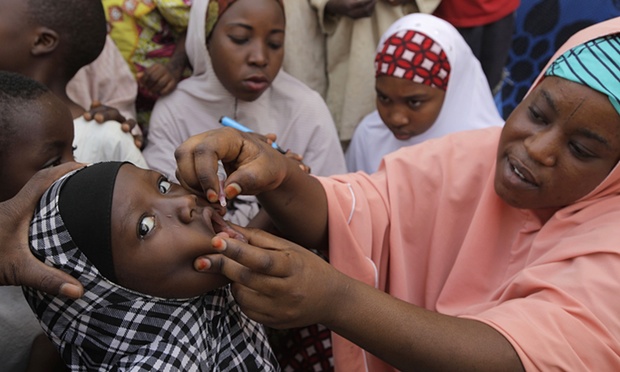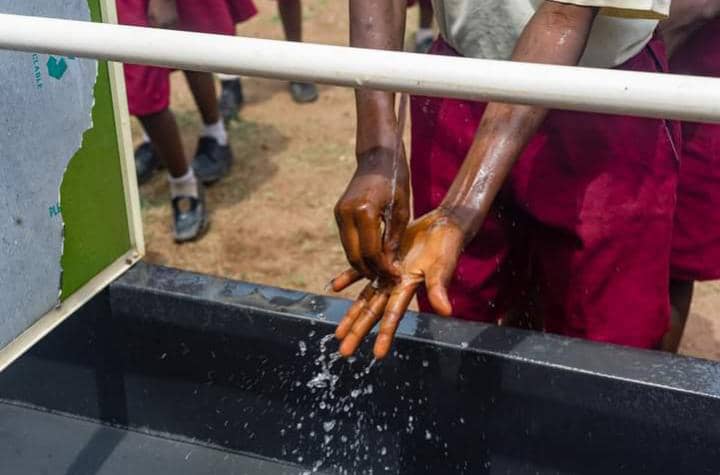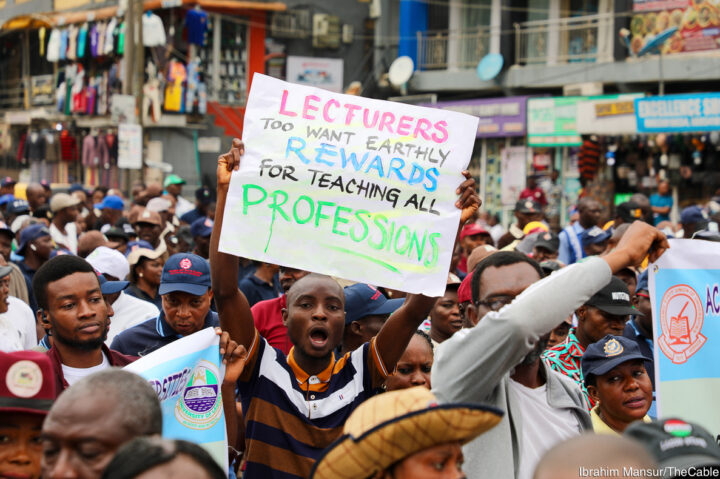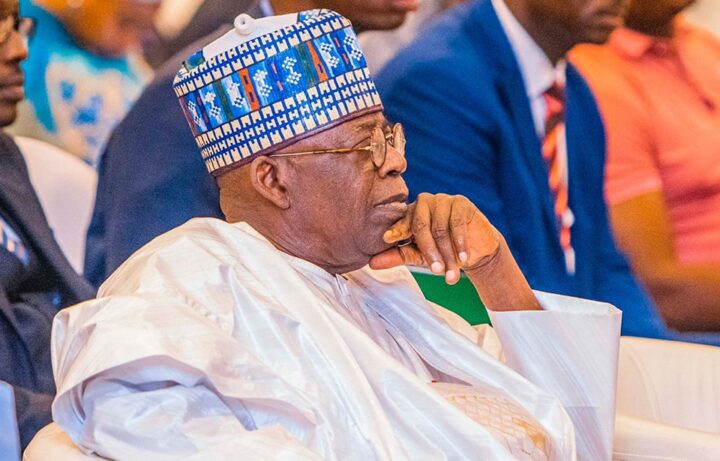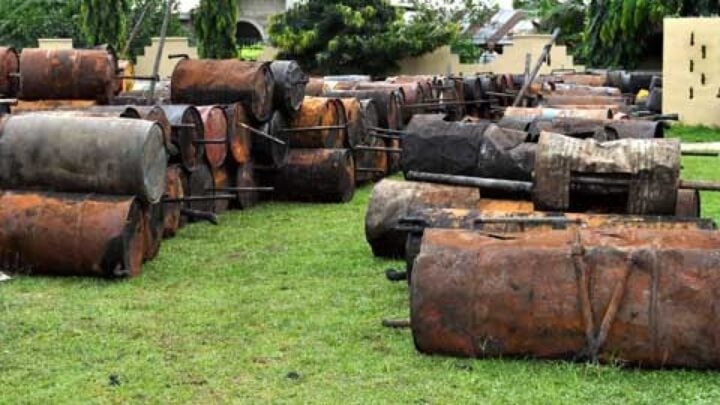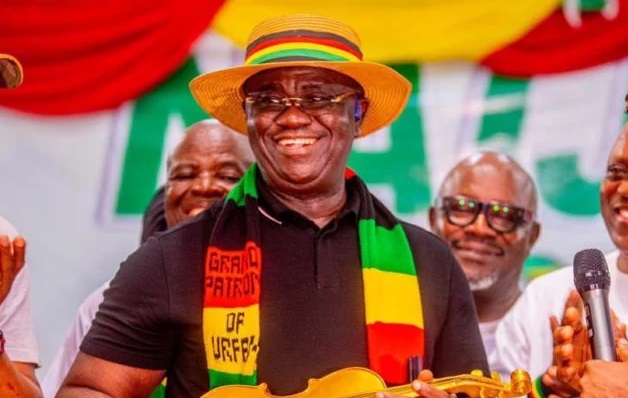A woman administering a vaccine to a child
After African heads of state committed themselves to eradicating polio during the 32nd Ordinary Session of the then Organisation of African Unity (OAU) in Yaounde, Cameroon in 1996, it took another 24 years before the victory song was sung in 2020 when the chairperson of the African Regional Certification Commission for Polio eradication (ARCC), Rose Leke, announced that the region had successfully met the certification criteria for wild polio eradication, with no cases of the wild poliovirus reported for four years. In Rose’s reckoning, it was a historic day for Africa.
Prior to that time, polio was said to be paralysing an estimated 75,000 children in Africa annually, although eradication efforts had also prevented up to 1.8 million children from crippling life-long paralysis and saved approximately 180,000 lives through campaigns such as the Nelson Mandela-inspired Kick Polio Out of Africa. A unique effort by governments, communities, global polio eradication partners, and philanthropists, which shook off weak health systems, and significant logistical and operational challenges across the continent, had placed greater hope ahead for the future. All were however resolved that vigilance was vital among campaigners in order that a reversal would not be witnessed.
Indication nonetheless does not suggest that Nigeria is wary of the required vigilance, considering the negligence being perpetrated by some concerned officials and other stakeholders in what is supposed to be a concerted effort at warding off the threat of preventable diseases from children. Today, reliable data has revealed that seven out of ten children have not received full vaccinations with some having received as low as just one vaccine. The data also showed that 19 percent of children aged between 12 and 23 months are not vaccinated at all.
Meanwhile, a review of the childhood vaccination trend of children aged 12 to 23 months in Nigeria revealed that in 15 years between 2003 and 2018, there has been an improvement in the percentage of children that have received all basic vaccination or have been vaccinated at all. The percentage of children that have received all basic vaccinations increased from 13 percent in 2003 to 31 percent in 2018. In the same vein, the percentage of children that have not received vaccination decreased from 27 percent in 2003 to 19 percent in 2018, although indicating still that Nigeria still has a lot to do in order to meet Sustainable Development Goal 3’s target of achieving more than 90 percent coverage of all basic vaccinations among children aged 12 to 23 months.
Advertisement
Nigeria’s childhood vaccination coverage also falls short of Global Vaccine Action Plan (GVAP) targets, putting a large number of children at risk of death and vaccine-preventable diseases in the future. It is trite that when children are immunised, their immune system is able to produce antibodies that prevent them from contracting the disease if and when they are exposed to it.
Research reveals that several reasons account for low childhood vaccination rates, ranging from spousal opposition, lack of awareness, inadequate time, health services quality, and vaccine concerns, all of which necessitate the need for a fresh and sustained approach to raising vaccination rates from the prevailing low levels. In addition to the foregoing are insecurity that has led to attacks on healthcare workers, destruction of healthcare facilities, and displacement of people from their homes to live in overcrowded IDP camps, where infectious diseases are easily spread.
Curiously, despite immunisation being one of the most successful, cost-effective, and sustainable public health interventions against diseases globally and despite the accrued benefits, Sokoto and Jigawa states have consistently recorded the lowest immunisation coverage in different surveys conducted in Nigeria over the last decade. The situation in both states could have resulted from the reasons proffered above, however. But suffices it to say that in Sokoto, for instance, the large proportion of vaccinated children was more among employed and educated parents while possible vaccine apathy from information gaps was associated with lack of full vaccination.
Advertisement
Interestingly in September 2021, the Jigawa State Primary Healthcare Development Agency (NPHCDA) announced that it had targeted 57,145 children for inoculation against polio in the second round exercise in the Malammadori Local Government Area of the state. According to the state’s Technical Facilitator, Mallam Usman Binyaminu: “57,707 children were inoculated against the disease in the last round exercise in the area. We received 66,150 doses of Oral Polio Vaccine (OPV) and deployed 109 personnel for the exercise.”
Executive Secretary of the agency, Dr. Kabir Ibrahim, also said: “Overall, we are targeting 1.7 million children for inoculation against polio in the second round immunisation campaign and we have already deployed adequate personnel to facilitate smooth conduct of the exercise across the state.”
In an apparent effort to motivate vaccination-hesitant indigenes in the state to partake in the inoculation, the Jigawa government also offered an estimated 110,000 infants N500 incentive to enable their parents to bring them out for inoculation. Why the turnout is still low, despite all these measures, is beyond comprehension. But Mallam Musa Shehu, a resident of Dutse, Jigawa State capital, said: “I think the success or failure of any immunisation exercise depends largely on the adequate and sustained awareness campaign accorded it. Otherwise, it is one thing to target even 2 million children and completely another thing to capture them.”
The result of low vaccination has not been far off from Sokoto State which, according to reports, recorded over a thousand cases of measles between January and March 2022 in all the 23 local government areas of the state. Verifiable records show that at 51 percent, Sokoto stands as the highest in Nigeria among the states where the children have not received any vaccination at all. Although Commissioner for Health, Dr. Ali Inname, said the state established about 500 immunisation centres across the state, he admitted that some communities have not responded positively to the government’s immunisation campaigns, even as the Nigeria Centre for Disease Control (NCDC) describes Sokoto as “one of eight states in Nigeria with the worst cases of measles outbreaks.”
Advertisement

It is worth noting that despite the effort of the Sultan of Sokoto, Muhammadu Sa’ad Abubakar, in 2017 at assuring the Muslim majority in the state that the vaccines are safe and Islamic, the response has still remained low.
The monarch had said: “The vaccines have been internationally and medically certified by medical experts and Islamic clerics. We have also agreed with them as we will not accept and consent to anything that will harm our children.”
Religion can be adduced as a factor militating against immunisation in Sokoto and Jigawa states. But lack of political will on the side of the government in both states can be a more plausible reason, especially as nothing can explain the inadequacy of government in ensuring that the campaigns reach their desired targets in an adequate fashion.
When the Child Rights Information Bureau (CRIB) of the Federal Ministry of Information and Culture, in collaboration with UNICEF, organised a two-day Media Dialogue on Multiple Indicator Cluster Survey (MICS 6), it aimed to appraise journalists on the development of immunisation in Nigeria and guide them on how to contextually report same to the public.
Advertisement
Participants resolved to examine the level of immunisation nationwide with a view to highlighting the success story as well as shortfalls, while still spreading enlightenment where necessary.
Advertisement
Add a comment

